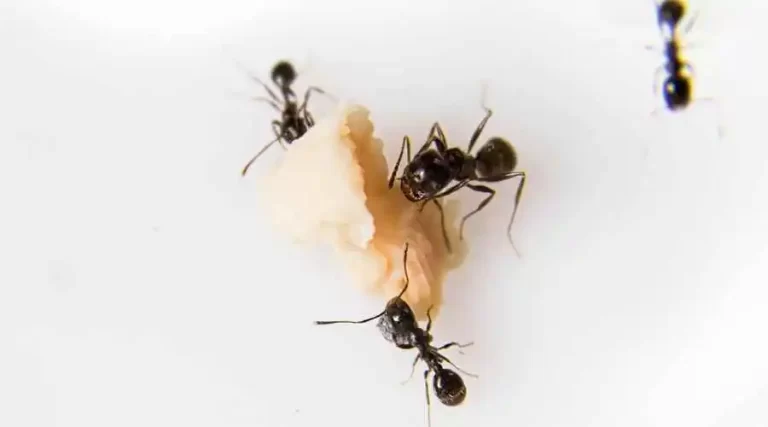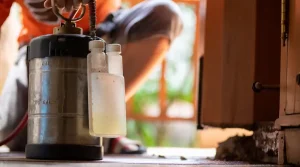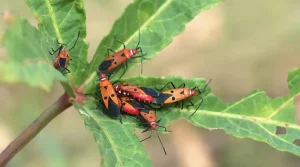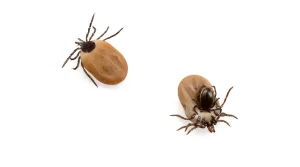Little black ants frequently appear in kitchens and restrooms, following and apparently out of nowhere. Don’t freak out if you spot tiny black ants in your kitchen! These are the typical indoor ants, sometimes called “nuisance ants” or “odorous house ants.” The bad news is that you have an ant infestation and must get rid of it quickly before numbers grow.
The good news is that annoyance ants don’t eat through wood or harm the structure of your house. Like humans, they are far more focused on eating and drinking than anything else.
Do you have ants in your kitchen?
Where in my home do ants reside?
Ants do not typically reside indoors, despite what you would think. They establish colonies around your property and send “scout ants” out to collect food and water for the colony. Have you ever questioned why you might see one ant one day and hundreds the next? The scout ant is the one you observe searching for supplies and directing the colony to follow. You occasionally see ants traveling in a single line because they leave a pheromone trail to signal the colony to follow them.
Small, stinky house ants can be found almost anywhere, but they are most frequently seen in bathrooms and kitchens. They can scavenge a large area thanks to their capacity to scale walls and move between the stories of your house. Are there ants in any other areas of your home?
\Due to the higher moisture levels there by nature, they are also drawn to basements. In actuality, you can find little black ants throughout your house. There is no accurate technique to entirely and accurately seal off your home against little ant infestations.
What causes ants to gather in my kitchen?
The most typical spot to encounter annoying ants is in your kitchen. They are drawn to resources like food and water to keep the colony alive and expanding. Your family may unavoidably leave little crumbs behind after meals and snacks. Crumbs are unavoidable on floors unless you are meticulous in cleaning and sweeping. Even if you take great care to keep your kitchen floor spotless, ants will still be drawn to alternative food sources that you might not even be aware of.
Tiny ants and other pests might flourish in your kitchen thanks to pet food bowls. To avoid this situation, dispose of any leftover pet food or pick it up off the floor and place it in a sealed container at the end of each day. Ants can quickly discover pet food and other pests in poorly sealed containers, such as the big paper bags they come in. Even more ant deterrent is frequent water dumps from the bowl. Since dogs and cats often eat and drink in an untidy manner and produce crumbs and water droplets that attract ants, it is also essential to clean the area surrounding the bowls.
Another aspect that draws tiny house ants is water. Ants can enter your home through your kitchen counter, leaking pipes in your dishwasher or under your sink, and standing water.
Use a lid on your trashcan to prevent ants from getting to your leftover food scraps and crumbs. Food that is kept in your cupboards and pantry but not sealed correctly may also be a factor in why ants find your kitchen attractive. Out of sight, out of mind, right? You can avoid pantry pests like Indian meal moths and saw-toothed grain beetles by moving loose goods or readily penetrated containers like cereal boxes. Throwing away fruit that may be too ripe and left out on your counter is another approach to keeping an eye on readily available items.
Keep in mind that sweets attract ants.
Why am I unable to remove ants by myself?
Getting rid of ants might be difficult if you don’t target the source. You’ll only eliminate the readily apparent ants if you don’t focus on the nest. Ant colonies are primarily found outside, not inside.
You can watch the ants actively seeking food and liquids to return to the colony. Ants won’t be as likely to attack your home if you make it less appealing to them.
Ants are not only hard to get rid of, but they are also widespread. Odorous house ant colonies can number in the thousands and be found all over your property. Odorous house ants reside outside your home in heaps of wood, the dirt behind rocks, and under potted plants. It’s even more challenging to eradicate the issue without expert pest management because their nests migrate around, adding to the complexity.
Our knowledgeable service professionals will investigate the causes of your ant activity to establish a barrier of protection. If the technician determines that additional treatments are required for efficient ant control, gel baiting may be used indoors.





